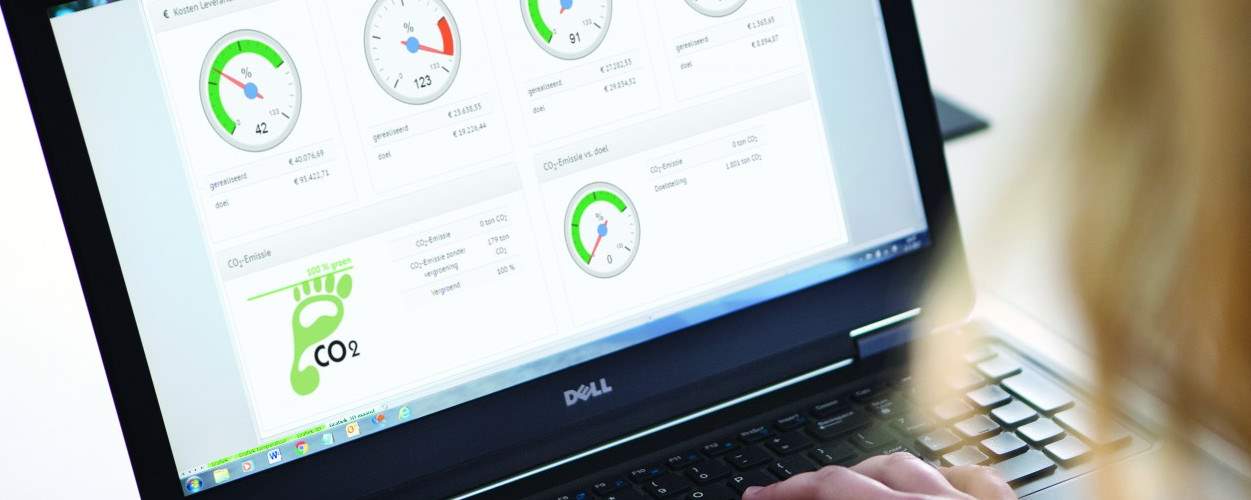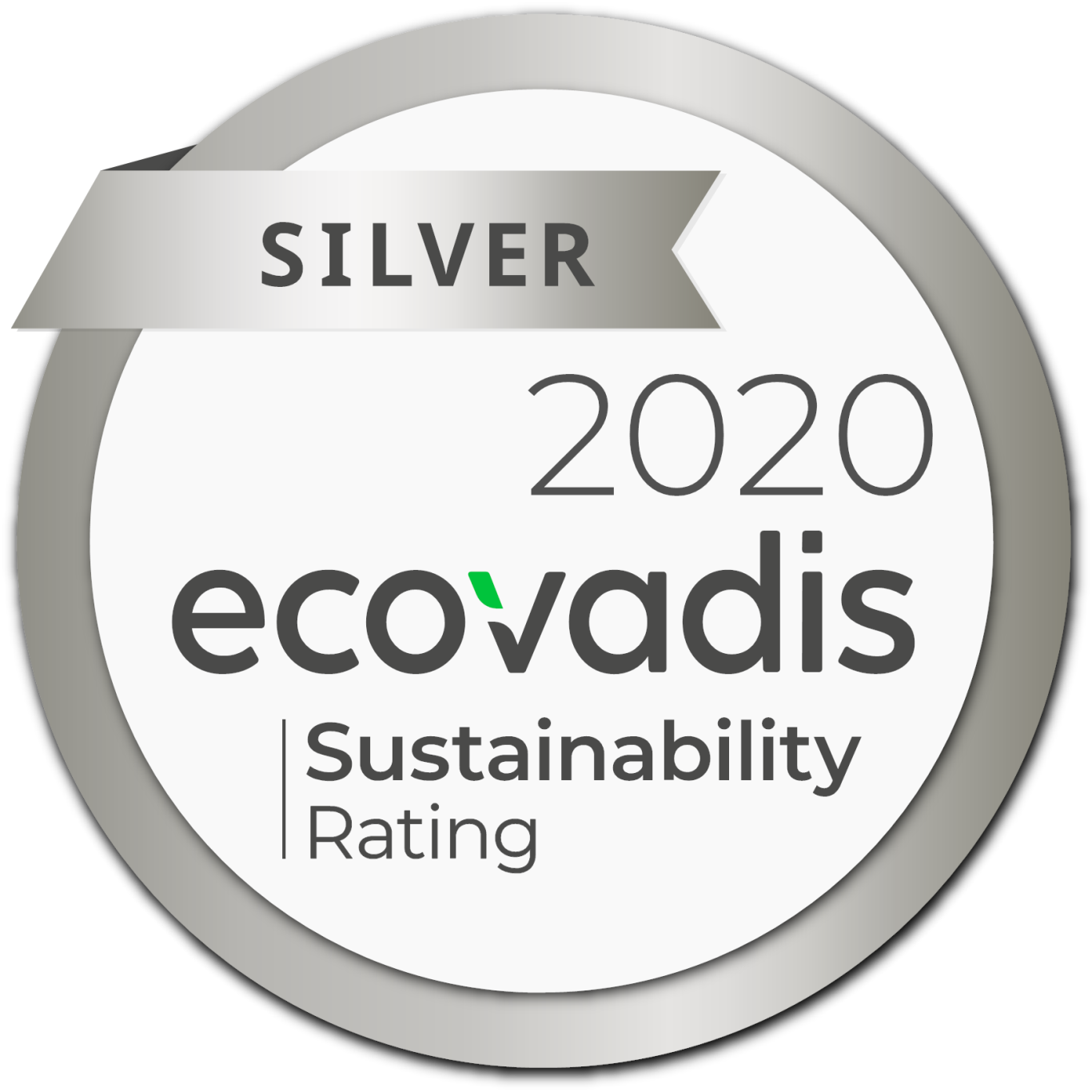Social value
Based on its leading position as one of the most sustainable technical service providers in the Netherlands, Unica translates measures relating to the energy transition into practical solutions that help clients to meet their climate goals. Sustainability also plays a significant role in the internal business operations.
Market developments
The Climate Agreement of 2019 contains more than 600 specific agreements to reduce greenhouse gas emissions. The translation of these agreements into tangible measures was delayed in 2020, but the longer-term targets remain unchanged. The topic will remain highly relevant in the years ahead and will not disappear from the agenda, but the implementation of the necessary sustainability measures is more erratic. Following a phase in which firm statements were made and clear-cut ambitions defined, attention has shifted to the feasibility of the proposals in the present implementation phase. This phase, with a focus on realism, reinforces the impression that sustainability measures are most likely to succeed if they are also cost-effective.
With its in-depth knowledge of the market and the latest technology, Unica is in a strong position to assist clients to make well-considered decisions, allowing them to fulfil their climate ambitions. In practice, short term opportunities are predominantly found in hybrid solutions in which a more sustainable option is chosen for some energy sources, while simultaneously retaining existing energy sources. This intermediate phase is necessary to make sustainability solutions accessible and affordable so that permanent solutions that meet the climate objectives in their entirety can eventually be implemented.
Client paths
Unica’s clients are also looking for practical, feasible options that will allow them to achieve the climate objectives without taking measures that are difficult to justify from a commercial or operational perspective. The energy solution services that Unica offers often only make up a relatively small portion of the technical work it performs for clients, but these services have a significant strategic impact.

For example, in 2020 Unica assisted with the procurement process for a procurement group of 4,000 schools in the Netherlands, which now use wind energy sourced from the Netherlands and Europe as a result. This means they now meet climate goals with respect to clean energy sources for educational institutions for the next five years. Individual clients also examine which energy-saving measures are mandatory or which measures they could take voluntarily to comply with climate legislation. Our energy consultants performed audits for over 300 clients and prepared advisory reports in line with the European Energy Efficiency Directive (EED) and the Recognised Lists of Measures for energy efficiency (Erkende Maatregelenlijsten energiebesparing, EML). Following various audits, Unica has provided numerous clients with an ‘Energy Performance Advice for Utilities’ (EPA-U) label, which determines the energy efficiency of a building and identifies which energy-saving measures may be taken to improve the sustainability performance of the building. Unica’s corporate clients also draw on Unica’s energy consultancy services. ABN AMRO and PwC, among others, rely on the advice provided by Unica when translating their climate goals into tangible measures.
In addition to emission reduction, the reuse of materials is another theme that has become part of the business operations for an increasing number of clients. In the framework contract with the Directorate-General for Public Works and Water Management, which Unica has been implementing in various regions since the summer of 2018, the circular economy is one of the criteria for the assessment of Unica’s service.
Internal business operations
Turning the climate objectives into concrete measures also applies within the company. To bring focus to these efforts, a Sustainability Board was assembled in 2019 to pool all internal knowledge on the circular economy, energy, supply chains, certification and business development. As in its advice to clients, Unica itself also looks for the most feasible and affordable initiatives. Based on that analysis, the various potential improvements are prioritised.
Waste processing is one area where progress has already been made in recent years. In the past two years, despite the growth of the organisation, Unica has been able to reduce waste by over 12% thanks to more efficient use of the available resources. Furthermore, raw materials that are retained during waste processing rose by 5% in 2020 to 35%. In the next few years, Unica and the waste processing company Renewi will be taking on more measures to further improve waste processing at all Unica’s project locations and to include new offices and project locations belonging to the Unica organisation.
While the approach to waste processing is an example of targeted measures geared to the short term, efforts to make the vehicle fleet more sustainable are an example of measures expected to have an effect on Unica’s climate goals in the medium term. With a vehicle fleet of over 1,950 cars and service vehicles, mobility is the largest single factor in Unica’s carbon footprint. A fall of over 10% was already seen here in 2020, primarily because far fewer kilometres were driven as many employees were working from home.
To sustain this decrease after the Covid-19 crisis, Unica has identified various measures to systematically reduce carbon emissions from the vehicle fleet. The most important component is increasing the appeal of the lease scheme for electric cars. Various barriers to its use were removed in 2020. For example, access to an on-site charging station and a holiday scheme were introduced, whereby a driver can use a car that runs on petrol for a few weeks each year for holiday trips abroad. As a result of the Covid-19 crisis, a stop was imposed on orders of new company cars for several months in 2020 to reduce costs. To bolster the appeal of electric cars, the ban on orders was lifted several months earlier for this segment. This led to over 50 employees applying for an electric car who might otherwise have opted for a car running on traditional fuels.
The above measures apply to company cars for office employees, but 56% of Unica’s vehicle fleet consists of service vehicles. They need to be deployed flexibly and the demands are therefore stricter with regard to the range and weight. To investigate the options for the electrification of this segment of the vehicle fleet, Unica is taking part in a two-year research project looking at using electric transport for service logistics, run by the Universities of Applied Sciences of Amsterdam (HvA) and Arnhem & Nijmegen (HAN). The project combines knowledge of logistical processes, energy supplies and employee behaviour in the adoption of innovative solutions that enable electric service logistics. As part of this research project, Unica is currently carrying out a pilot with a completely electric delivery van in the Arnhem region. Separate from this study, a pilot was launched with the use of five fully electric service vehicles to determine whether they offer sufficient options for carrying out the work at clients’ sites.
The initiatives are part of Unica’s strategy for sustainable mobility, where the aim is to have an emission-free vehicle fleet by 2030. Another tactic through which Unica seeks to reduce emissions in the intervening period is to raise awareness about driving behaviour, for example by using an app that encourages employees to drive more safely and in a more fuel-efficient manner.
At the end of 2020, Unica received a silver EcoVadis certificate for its performance with regard to corporate social responsibility (CSR), in which the environmental aspect plays a big role. The EcoVadis certificate is a widely used international standard for assessing CSR performance. Unica uses such analyses as structural instruments to measure its social value and environmental achievements and to identify scope for improvement. With respect to sustainable internal business operations, there is potential for further improvement in the organisation’s own assets through the adoption of a more integrated registration and assessment of building-related data records. In view of the experiences with employees working from home, a reappraisal regarding the necessary office space is likely with a reduction in capacity. Unica will use this reappraisal as an opportunity to further improve the sustainability indicators for its own assets.
